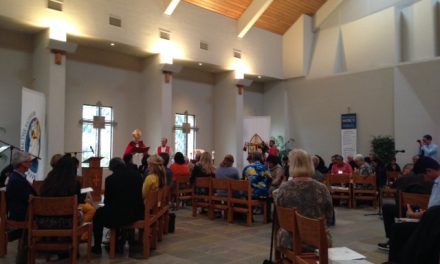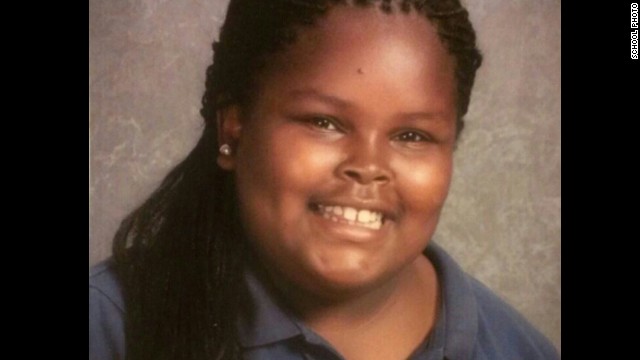 During his speech at the Democratic Convention, President Obama mentioned Donald Trump by name and was met with a chorus of jeers. The President’s response: “Don’t boo. Vote.”
During his speech at the Democratic Convention, President Obama mentioned Donald Trump by name and was met with a chorus of jeers. The President’s response: “Don’t boo. Vote.”
This is a profound challenge to Catholics this election cycle who, informed by the expansive moral vision of the church, have two candidates to boo and nobody for whom to cheer. As Jana Bennett pointed out yesterday, Faithful Citizenship does leave open the possibility of not voting when “all the candidates hold a position that promotes an intrinsically evil act.” It ought to be noted though that Faithful Citizenship calls this decision an “extraordinary step.” In other words, the decision not to vote, though legitimate, ought not to be considered a foregone conclusion.
Catholics who do choose to vote this election cycle will have a serious challenge of figuring out which candidate is “less likely to advance a morally flawed position [and] advance the common good.” It is not at all clear which candidate this is. What is clear is that in the past, Catholics have been able to hold up the Republican candidate as, at the very least opposed to abortion. While I agree with Jana that the concept of non-negotiables is not helpful (nor is it magisterial), it has provided a useful heuristic for Catholics who care deeply about the evils of abortion as the most important issue in a given election year.
This is no longer the case. There is no longer a clear “pro-life” candidate, though Trump will certainly court that constituency. Nor is it clear which “non-negotiables,” if you still want to use that language, even matter this election cycle. I don’t really see the two candidates debating abortion, same-sex marriage, euthanasia, stem cell research, and human cloning. These are not the issues that really matter this time around. In short, the conversation about who to vote for (or who to vote against if that language helps you feel better) will look different in 2016 than it did four or eight years ago.
But honestly, for many Catholics, it wasn’t all that clear who to vote for four and eight and twelve years ago either. This election might be different in degree but isn’t necessarily all that different in kind. We live in a country where both parties have aligned themselves with positions that are egregious to a Catholic moral vision. There is no such thing as a Catholic vote. There hasn’t been for a long time, and it isn’t because some Catholics haven’t been voting their conscience. It is because conscience formation is a complicated thing and may yield different results in different Catholics. This has long been the case, and this election will be no different.
As Catholics read and debate Faithful Citizenship in the upcoming months, they ought to do so in a spirit of fraternity, charity, and above all, mercy, recognizing that any decision to vote will involve a certain dirtying of hands and no small amount of courage. People who choose to vote deserve to be listened to, not jeered at and especially not accused of being un-Catholic as they have in previous years. There are legitimate reasons for Catholics to vote Trump. There are legitimate reasons for Catholics to vote Clinton. Catholics in good conscience may end up doing either.
Catholics certainly have things to boo this election cycle. But other Catholic voters who, in good faith, are trying to exercise their democratic duty, are not one of them.




Normally I would agree that there are many pros and cons between the candidates to consider. This is not one of those years.
Normally I would agree that basing one’s vote on a single issue is reasonable. This is not one of those years.
Normally I would agree that there isn’t a Catholic vote, and shouldn’t be. This is not one of those years.
I’m sorry, but there are no legitimate reasons to vote for Donald Trump, nor are there legitimate reasons for not voting.
If one can not clearly grasp the existential threat presented to America and the world by the election of Donald Trump, one should give back one’s college degrees and resign from the Church, for both investments have been a wasted effort.
When one’s house is on fire it’s not reasonable to be reasonable. When one’s children’s lives are on the line it’s not a time for calm measured statements. Like it or not, it’s one of those kind of years.
Russian missiles can arc over the poles and obliterate everything we care about in 30 minutes, leaving North America a toxic wasteland for centuries to come. That’s what we should be focusing on and talking about this year.
Hi Phil. I am pretty scandalized too, but imagine someone saying that they have always trusted the Republican party to stand by the unborn and Trump’s choice of a VP still affirms that issue as a priority, though Trump himself is not an ideal “pro-life” candidate. I can imagine someone sticking by the Republicans even while rejecting Trump on abortion grounds, too, by looking at how far the Democratic party is taking their platform on the right to abortion. And for those people who make such a vote in good conscience, I don’t think it is appropriate to demand they renounce any claims to intelligence and leave the Catholic Church. He is a scandal of a candidate, but respecting conscience means we need to respect conscience.
Hi Beth,
Yes, I realize that many folks have abortion as their top concern, and I respect their right to vote on that issue. My point is that it doesn’t make sense to do that _this year_ when we have an unbalanced thoroughly unqualified candidate who could literally get everyone in the country killed. If the Republicans had put someone sane and qualified like Jeb Bush on the ticket I would not be raising this complaint.
Do we want Trump in the Oval Office during an event like the Cuban Missile Crisis? Those weapons still exist and are still on launch on warning status. And as you know, relations with Russia are steadily deteriorating. Isn’t this stark reality rather more important than abortion or pretty much any other issue? How do we save unborn babies once we’ve all been incinerated??
I agree my comments are often “inappropriate” but you haven’t yet explained why voting for Trump would be either intelligent or Catholic.
I think it’s reasonable in such an extraordinary situation for any educated Catholic voting for Trump to closely examine whether their education and religion are actually working for them. Is there really such a big difference between voting for Donald Trump, or voting for Donald Duck?
I agree that respecting conscience is a good concept normally, but again, this is not one of those years. The Catholic Church recognizes that some situations require dramatic, if temporary, adjustments in our values. As example, the just war doctrine accepts the mass slaughter of innocents when the alternative is even worse.
Am I being hysterical? I would hope so. This election is a hysterical situation.